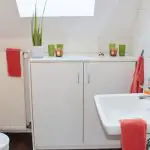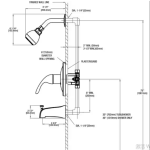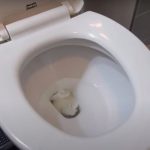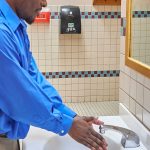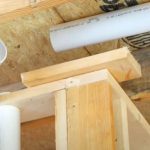If you’ve ever noticed a sewage smell coming from your air vents, you’re not alone. This is a problem that many homeowners face at some point, and it can be extremely unpleasant. The good news is that there are some things you can do to get rid of the smell and prevent it from coming back. In this article, we’ll discuss the causes of sewage smell in air vents, the health risks associated with it, and how to get rid of it for good.
Causes of Sewage Smell Coming from Air Vents
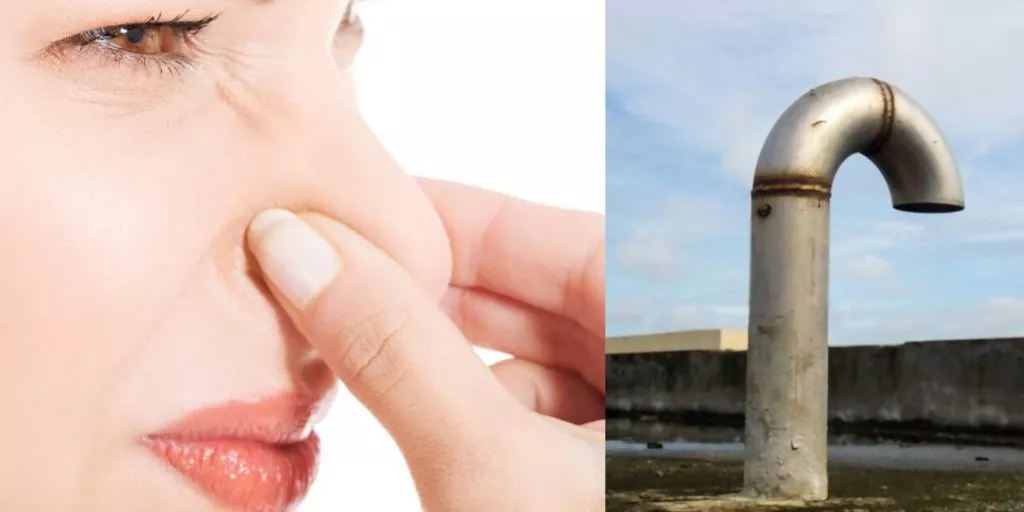
Sewer line issues
Sewer line issues can cause sewage smell in your home’s air vents. When the sewer line is broken, clogged or backed up, the sewage gases will find their way back into your home’s drain pipes and eventually into your air vents. Tree roots, debris buildup, or aging pipes can cause sewer line issues.
Clogged drain lines or vent pipes
Clogged drain lines or vent pipes are another potential cause of sewage smell coming from air vents. The drain lines are designed to remove wastewater from your home while the vent pipes are intended to provide the necessary air pressure for wastewater to move through the drain lines.
When either the drain lines or vent pipes are clogged, the wastewater gets trapped, and the sewage gas will seep through the pipes and into your home’s air vents. This can be a common issue in the bathroom and kitchen drains, especially when grease or food particles are disposed of down the drain.
Dry P-traps
P-traps are the U-shaped pipes found under your kitchen sink or any other drain. They’re designed to hold water, which blocks the sewage gas from flowing back into your home. However, when the P-traps dry out, they lose their water seal and allow the sewage gas to escape into your home. This can happen when a drain is not used frequently, such as a guest bathroom or a drain in a basement. Pouring water down the drain to refill the P-trap can solve the issue.
Cracks in vent pipes or drain lines
Cracks in the vent pipes or drain lines can also cause sewage smell coming from air vents. Cracks in the pipes can allow the sewage gas to leak out and enter your home through the air vents. Aging pipes, changes in temperature, and structural shifting can all contribute to cracked pipes.
Other potential causes
There are other potential causes of sewage smell coming from air vents, including damaged sewer lines, dry drain traps, issues with the plumbing vent stack, and issues with the septic system. In rare cases, it could be due to a problem with the HVAC system. It’s important to investigate the cause of the sewage smell to ensure that the correct steps are taken to fix the issue.
How can I get rid of the sewage smell?
DIY solutions
Flushing the drains with hot water and vinegar
One of the easiest ways to eliminate sewage smell coming from air vents is to flush your drains with hot water and vinegar. This will help to remove any buildup or debris that may be causing the smell. Simply pour a pot of boiling water down the drain followed by a cup of white vinegar. Wait for about 10-15 minutes and then flush the drain with more hot water.
Pouring baking soda down the drain
Another way to get rid of the sewage smell is by pouring baking soda down the drain. This is a natural way to neutralize odors, and it’s safe for your pipes. Pour about 1/4 cup of baking soda down the drain, followed by a cup of hot water. Wait for about 15-20 minutes, and then flush the drain with more hot water.
Cleaning the air vents
Cleaning the air vents is also an important step in getting rid of the sewage smell. Use a damp cloth to wipe down the vents and remove any debris that may be causing the smell. You can also use a vacuum cleaner to remove any dust or dirt from the vents. If the smell persists, you may need to remove the vent covers and clean them thoroughly with soap and water.
Health Risks Associated with Sewage Smell in Air Vents
When sewage enters homes or buildings through the air vents, the health risks are great. The most common health risk associated with sewage is infection. This is because sewage contains a variety of harmful bacteria that can cause serious illness. Inhaling sewage fumes can also lead to respiratory problems, such as bronchitis and pneumonia. In extreme cases, exposure to sewage can even be fatal.
Another health risk associated with sewage is toxic shock syndrome. This is a rare but potentially fatal condition that can occur when harmful bacteria from sewage enters the bloodstream. Symptoms of toxic shock syndrome include fever, low blood pressure, and organ failure. If you think you may have been exposed to sewage, it is important to seek medical attention immediately.
Finally, exposure to sewage can also cause skin irritation and rashes. This is because sewage contains a variety of chemicals and pollutants that can be harmful to the skin. If you come into contact with sewage, it is important to wash your skin thoroughly with soap and water as soon as possible.
Preventing Future Sewage Smell in Air Vents
There are a few things that you can do in order to prevent future sewage smells from coming from your air vents. First, make sure that all of your plumbing is in good working order and there are no leaks.
Second, have your septic tank pumped regularly to avoid any build-up of sewage in the tank. Third, keep an eye on the grease trap in your kitchen and make sure that it is emptied on a regular basis.
Finally, if you have a garbage disposal, be sure to use it sparingly and never put anything down the drain that could clog the pipes. By following these simple tips, you can help to prevent any future sewage smells from coming from your air vents.
Conclusion
In conclusion, it is important to remember that a sewage smell coming from your air vents is not something to be taken lightly. The health risks associated with exposure to sewage are serious, and should be avoided at all costs. If you are experiencing this problem, take action immediately to get rid of the smell and prevent it from happening again in the future.
Latest Posts
- 1St And 2Nd Fix Plumbing Jobs: Essential Guide for Homeowners

- Kitchen Sink Suddenly Stopped Working: Quick Fixes and Tips

- How to Clear a Clogged Plumbing Vent: Expert Tips & Tricks

- Hub Drain vs Floor Drain: What You Need to Know

- How to Layout Plumbing for Bathroom: Expert Tips & Tricks

- Wall Shower Plumbing Diagram: Complete Guide

- How to Fix a Crack in a Plastic Bathtub: Step-by-Step Guide

- How To Remove PEX Pipe From Sharkbite Fitting: Step-by-Step Guide

- Shower Drain Slow But Not Clogged: Easy Fixes for Speed Up Flow

- Pop Up Drain Vs Push Down Drain: Which One Suits Your Sink Best?

- Fix It 24 7 Plumbing Heating Air & Electric Reviews: Unbiased Insights

- How to Unclog a Toilet Without a Plunger: Quick & Easy Tips

- Fix PVC Plumbing Fast: Expert Tips and Solutions

- How Reliable are Sharkbite Fittings: Trustworthy Tech?

- What to Do If Sink Drain Plug is Stuck: Quick Fixes

- American Plumber 600R: Optimize Your Water Purity!

- How to Install a Plumbing Vent Pipe: Step-by-Step Guide

- Plumbing Issues Toilet Backing Up into Shower: Solutions & Tips

- 1 1/2 PVC Plumbing Fittings: Essential Guide 2025

- Toilet Tank Losing Water But No Leak: 9 Reasons And Fix!






